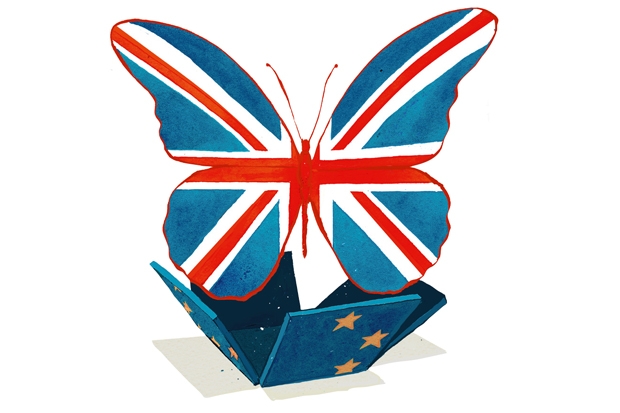The 17.4 million who voted for Britain to leave the European Union were giving advice, rather than an instruction, to Parliament. This ought not to be a controversial point. David Cameron chose to hold a consultative rather than a legally binding referendum – and was able to do this because it would be unthinkable for parliament to ignore such advice, or stand athwart the result of that referendum. All parties regarded the referendum as politically binding. All knew that, if Brexit was voted down, then parliament would be quickly dissolved and a general election called.
The British constitution is unwritten, reflecting a British distaste for schematic articles of political faith. For centuries, we have got along rather well by following some basic rules – and an understanding that laws are decided not by 10 Downing Street or by judges but by the Queen, through Parliament. When the High Court pointed this out last week, saying that a parliamentary vote is needed to start proceedings to withdraw from the European Union, many Brexiteers rounded on the judges as if they were trying to somehow subvert the will of the people. This is arrant nonsense. The Spectator supported Brexit, in both referendums, due to a belief that the British system of government is superior to the decaying and over-reaching institutions of Brussels, Luxembourg and Strasbourg. Our system works well precisely because we have a common law tradition and judges who can be depended upon to uphold the law – rather than buckle under periodic outbreaks of popular, financial or political pressure. And if No10 wants to change the law without consulting parliament, it is for judges to point out the unconstitutionality in such a dangerous suggestion.
As the late Tom Bingham observed, Britain’s acceptance of (and insistence upon) parliamentary sovereignty distinguishes us from all other members of the European Union. Even now, there is no question of the judges somehow overruling Parliament – on the contrary, they are defending its sovereignty, reminding MPs of their duty to resolve political issues. As Vernon Bognador memorably put it, sovereignty can be expressed in just eight words: what the Queen in Parliament enacts is law. The only power that the EU ever had in Britain is power that parliament voted to give it. If that power is to be retrieved, then parliament must vote to reclaim it – following the result of the 23 June referendum.
So if Theresa May wanted the legal authority to trigger Article 50 at a time of her choosing, she ought to have sought it through a parliamentary vote rather than pick a fight with the High Court. This is what she will probably have to end up doing anyway. Should Labour and Liberal Democrat MPs try to vote down Brexit they would (and should) be castigated for seeking to subvert the result of the referendum. But the judges who pointed out that laws in Britain are changed not via Prime Ministerial diktat but by parliamentary majorities are not somehow defying the people. They were pointing out how British government works: to change a law, you need a parliamentary vote. And if this is inconvenient for the Prime Minister? Tough. It is not for judges to clean up a mess made in Westminster.
So in this way “the people” are being defended, rather than defied, by the High Court’s decision. Yes, people elect governments and vote in referendums. But people are also protected by laws, interpreted by judges who are – mercifully – not influenced by the hissy fits of politicians or the media.
The High Court’s decision will not derail Brexit – only politicians can do that. The judges have made life slightly harder for the government but there is not (yet) a law against that. Their judgment underlines a wider point: that the vote for Brexit was a vote to defend a British system where people live under their own laws, as defined or repealed by Parliament – and by no one, or nothing else. This always has been the British way, however much it might inconvenience the Prime Minister.






Comments